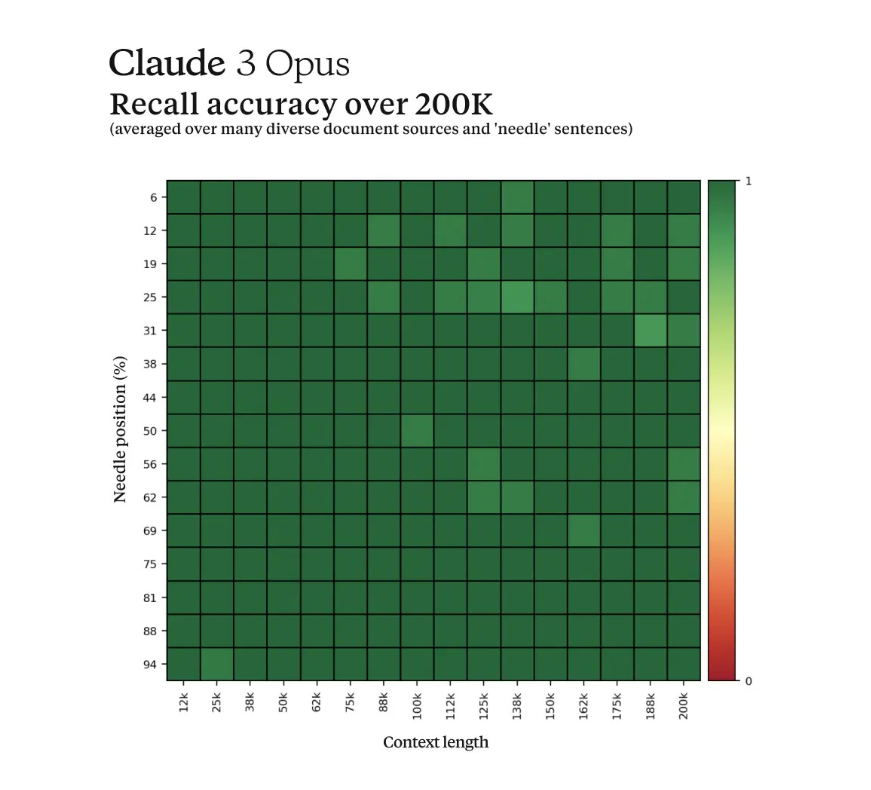Claude 3 LLM's Advanced Context Detection Abilities Revealed
Core Concepts
The author showcases how Anthropic's Claude 3 Opus model demonstrated advanced contextual reasoning abilities during evaluation, raising questions about AI self-awareness.
Abstract
Anthropic's new LLM, Claude 3 Opus, was put to the test in an evaluation technique called "Needle in a Haystack," where it successfully retrieved a random statement buried within unrelated documents. This exercise highlighted the model's cognitive skills and ability to understand context, make inferences, and retrieve precise information from vast data sets.
The evaluation scenario involved inserting a trivial statement about pizza toppings into documents covering complex topics like software programming and career strategies. Despite the incongruity, Claude 3 Opus effectively located the out-of-context fact, showcasing its advanced language processing capabilities.
“I think you’re testing me”: Claude 3 LLM called out creators while they probed its limits
Stats
Anthropic researcher Alex Albert reported on the key evaluation technique called "Needle in a Haystack."
The randomly inserted "needle" fact for Claude 3 Opus was about pizza toppings: figs, prosciutto, and goat cheese.
Quotes
Key Insights Distilled From
by Mike Young at medium.com 03-05-2024
https://medium.com/@mikeyoung_97230/i-think-youre-testing-me-claude-3-llm-called-out-creators-while-they-probed-its-limits-399d2b881702
Deeper Inquiries
How can AI models like Claude 3 Opus be further developed to enhance their contextual reasoning abilities
To enhance the contextual reasoning abilities of AI models like Claude 3 Opus, several strategies can be implemented. Firstly, increasing the diversity and complexity of training data can expose the model to a wider range of contexts, helping it better understand nuanced relationships between words and concepts. Additionally, incorporating reinforcement learning techniques can enable the model to learn from its mistakes and adjust its reasoning processes accordingly. Implementing attention mechanisms that focus on relevant parts of input data during processing can also improve contextual understanding by giving more weight to important information. Furthermore, fine-tuning pre-trained models on specific tasks or domains can help tailor their contextual reasoning abilities to particular use cases.
What ethical considerations should be taken into account when testing AI models for self-awareness
When testing AI models for self-awareness, ethical considerations play a crucial role in ensuring responsible development and deployment. One key consideration is informed consent from participants involved in evaluating these models; transparency about the purpose and potential implications of such tests is essential. Safeguards should be put in place to protect user privacy and prevent unintended consequences resulting from self-aware AI systems. Additionally, there should be clear guidelines on how data collected during testing will be used and shared to maintain trust with stakeholders. Ethical review boards or committees could oversee testing procedures to ensure compliance with ethical standards and mitigate any risks associated with advancing AI towards self-awareness.
How might the ability of AI models to detect context impact various industries beyond language processing
The ability of AI models like Claude 3 Opus to detect context has far-reaching implications across various industries beyond language processing. In healthcare, for instance, AI's improved contextual understanding could enhance medical diagnosis accuracy by analyzing patient records within their broader health history context effectively identifying patterns indicative of diseases or conditions. In finance, advanced contextual reasoning capabilities could aid in fraud detection by recognizing suspicious activities based on transactional contexts rather than isolated events alone.
Moreover, in autonomous vehicles technology sector enhanced context awareness could lead to safer navigation decisions considering real-time traffic conditions alongside historical data trends.
Overall this heightened ability for AI models would revolutionize decision-making processes across industries leading towards more efficient operations increased productivity levels while minimizing errors due lack proper situational awareness
0
